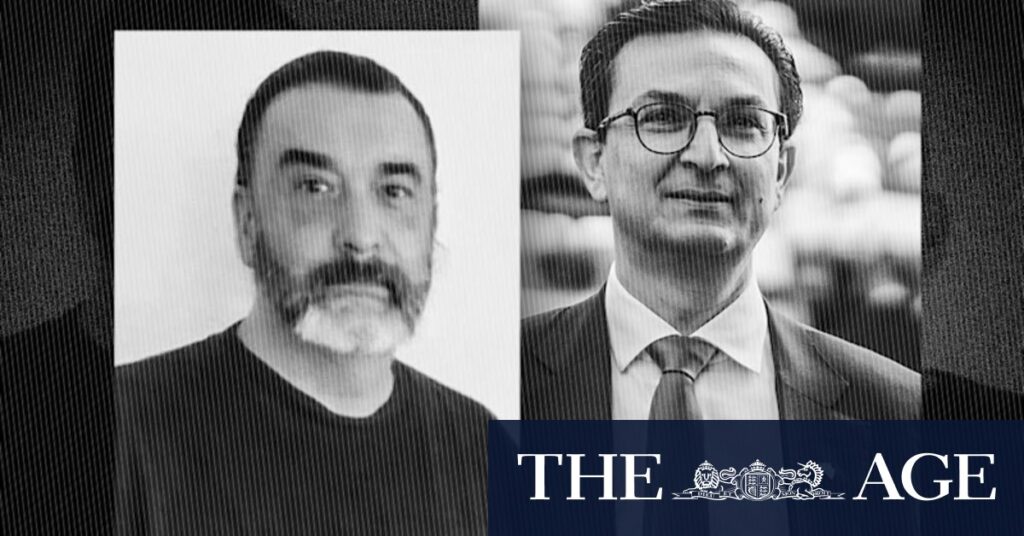
Amputee Fred Hernandez found himself behind bars for 16 months in a Nevada prison following a series of lawsuits initiated by disgraced surgeon Munjed Al Muderis. The legal battle stemmed from Hernandez’s social media posts accusing Al Muderis of unethical practices and a “major cover-up” in the field of osseointegration surgery. These allegations led to a contempt of court charge, resulting in Hernandez’s indefinite incarceration alongside hardened criminals.
Hernandez, an above-the-knee amputee, recounted his harrowing experience in prison, where he was allegedly mistreated by guards and denied adequate medical care. “The medical [treatment] in there was severely lacking on just about every level,” he stated. “I spent a good 15 months in a wheelchair, which has caused me to start from scratch for my walking.” Despite the hardships, Hernandez expressed no regrets about his decision to speak out, emphasizing the importance of patient awareness.
The Origins of a Legal Battle
The conflict between Hernandez and Al Muderis began in 2018 when Hernandez took to Facebook to warn potential patients about the surgeon’s conduct. His posts highlighted the risks associated with osseointegration, a procedure involving the insertion of a titanium rod into an amputee’s residual bone to attach a prosthetic limb. Hernandez’s warnings were later vindicated by a Federal Court of Australia ruling that criticized Al Muderis for negligent treatment and high-pressure sales tactics.
However, Hernandez had already suffered significant consequences due to the lawsuits filed by Al Muderis in the United States. “Over the years I became aware of situations that I frankly did not agree with; unethical on some levels and downright wrong on others,” Hernandez posted in December 2018. The ensuing litigation left him financially drained and unable to work in the osseointegration field.
Inside the Courtroom and Beyond
In a separate defamation case, Al Muderis unsuccessfully sued a media outlet and the program 60 Minutes. His barrister, Sue Chrysanthou, SC, falsely claimed Hernandez was the “primary source” for the investigation and opposed his testimony via video link from prison. Hernandez believes Al Muderis’s relentless pursuit of legal action was intended to silence him and maintain control over the lucrative osseointegration market in the U.S.
“If you work for him, he owns you,” Hernandez remarked. “His cult following will deny it, but they’ve never seen it. They’ve never worked on that level with him, so they have no clue.”
From Partnership to Conflict
Hernandez’s relationship with Al Muderis began in 2012 when he approached the surgeon with a business proposal. Enthralled by the potential of osseointegration, Hernandez offered to promote the procedure in exchange for a free surgery. Al Muderis accepted, and by 2013, Hernandez had undergone the operation in Sydney, Australia.
Initially, Hernandez fulfilled his part of the deal, promoting Al Muderis and the surgery through media interviews and roadshows. Unbeknownst to patients, Hernandez received cash commissions for referrals, a practice later deemed unethical by the Federal Court. This arrangement soured in 2018 when Al Muderis ceased commission payments, prompting Hernandez to publicly challenge the surgeon’s practices.
The Aftermath and Future Implications
Despite the Federal Court’s ruling against Al Muderis, the legal battles have left Hernandez struggling to rebuild his life. He remains resolute in his belief that patients deserve transparency and feels a personal responsibility to expose what he perceives as a “fake persona” of Al Muderis.
Looking ahead, the case raises questions about ethical practices in medical promotions and the responsibilities of healthcare professionals. The ruling may prompt further scrutiny of osseointegration procedures and the conduct of practitioners in the field.
As Hernandez continues to navigate the aftermath of his legal ordeal, his story serves as a cautionary tale about the potential consequences of challenging powerful figures in the medical community. His experience underscores the need for robust legal protections for whistleblowers and greater oversight of medical practices.







